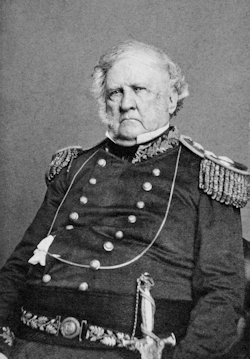Great Scott
Q From Jonathon Williams; related questions came from Stanley Frost in Canada and Peter Botha in Australia: I was wondering where the phrase Great Scott comes from. On another site I read that it’s actually a corruption of the German greeting Grüß Gott! Is it really German?
A The late John Ciardi also once believed this, though he recanted in a radio broadcast in 1985. You can be sure German immigrants to the US, say from Bavaria or Austria, brought with them their usual greeting, though it isn’t easy to work out how it could have been converted to Great Scott, since the German greeting is usually half swallowed and doesn’t sound anything like it.
On the other hand, it’s clear the English interjection — variously expressing surprise, amazement, annoyance or admiration — does indeed contain a euphemism for God, and so belongs with contemporary American expressions such as Great jumpin’ Jehoshaphat! and Great Caesar!
There’s some confusion about this one, with various possibilities being put forward for the Scott in question — sometimes a generic archetypal Scot is suggested and even Sir Walter Scott has been mentioned (this last one isn’t so daft as you might think, as I’ve found several examples in nineteenth-century writings to “the great Scott” in reference to him).
Let’s look at the facts. Until recently the earliest known example, in the Second Edition of the Oxford English Dictionary, was from F Anstey’s Tinted Venus of 1885: “Great Scott! I must be bad!” The digitising of electronic texts over the past decade has enabled researchers to take the saying back in stages by some thirty years. To date, the oldest known appearance in print was found by Peter Reitan in October 2015:
The great fine-and shearing (financiering) scheme of Mr. Kelly, has become the law of the land; and this bill of seventy five sections we promised to publish, should it be finally passed into a law. Great Scott! is it possible that we ever promised to publish this law.
Spirit of Democracy (Woodsfield, Ohio), 7 Mar. 1845.
Two later examples I’ve found strongly suggest that it referred to a real person:
“Great—Scott!” he gasped in his stupefaction, using the name of the then commander-in-chief for an oath, as officers sometimes did in those days.
Galaxy magazine, July 1871.
Scott, Great! a curious euphemistic oath, in which the name of a well-known general is substituted for the original word, probably merely because of its monosyllabic form.
Americanisms; the English of the New World, by Maximilian Schele De Vere, 1872.
Another search, by researcher Barry Popik, pointed to a specific person. It’s in a book of 1867 by John William De Forest, Miss Ravenel’s Conversion From Secession to Loyalty: “I follow General Scott. No Virginian need be ashamed to follow old Fuss and Feathers. We used to swear by him in the army. Great Scott! the fellows said.”

A portrait of General Winfield Scott, 1862.
There was indeed a famous and successful American general named Scott, who had the title of commander-in-chief of the US Army at the outbreak of the Civil War, though he had been in the Army since 1808 and is best remembered as one of the two American heroes of the Mexican War of 1846–48 (if, that is, you’re American and not Mexican). This was General Winfield Scott. It seems plausible that he is the source being pointed to, especially as he was 6ft 5ins (195cm) tall. In his later years he weighed 300 pounds (21 stone or 136kg), was too fat to ride a horse and was certainly a great Scott in an imposingly literal sense.
There’s nothing new in this attribution, however. Winfield Scott has previously been fingered as the origin by several writers, among them Eric Partridge. And we still can’t be absolutely sure that he was the Scott being alluded to. But the combination of dates and the references written so soon after the event point to him quite strongly.
